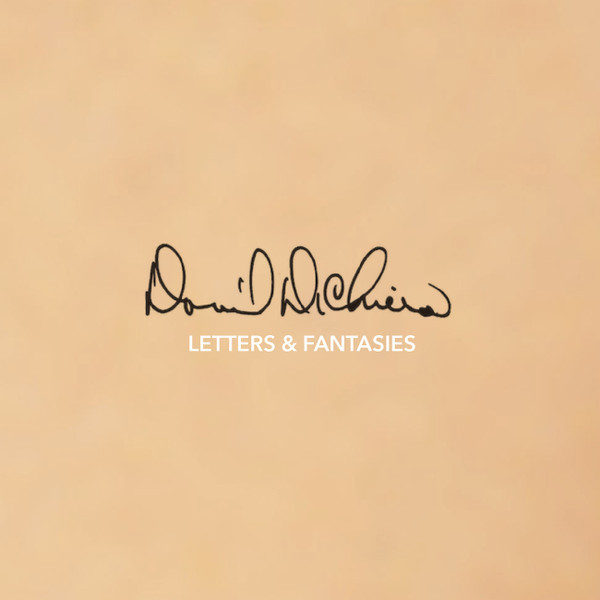DiChiera, David / Letters & Fantasies
| Album: | Letters & Fantasies | Collection: | Classical | |
| Artist: | DiChiera, David | Added: | Aug 2023 | |
| Label: | Innova Recordings | |||
A-File Activity
| Add Date: | 2023-08-13 | Pull Date: | 2023-10-15 | Charts: | Classical/Experimental |
|---|
| Week Ending: | Oct 8 | Oct 1 | Sep 17 | Sep 10 | Aug 20 |
|---|---|---|---|---|---|
| Airplays: | 1 | 2 | 1 | 1 | 1 |
Recent Airplay
| 1. | Oct 07, 2023: | Music Casserole
Letter to Sarah (6:13) |
4. | Sep 16, 2023: | Music Casserole
Letter to Sarah (6:13) |
|
| 2. | Sep 30, 2023: | Music Casserole
Fantasy for Violin and Piano (5:45), What Lips My Lips Have Kissed (4:56) |
5. | Sep 09, 2023: | Music Casserole
Ballade (2008) for Solo Piano (6:31) |
|
| 3. | Sep 28, 2023: | Virtually Happy
Loving You Less Than Life (3:16) |
6. | Aug 19, 2023: | Music Casserole
Black Beads, No. 1, Seek a Foreign Soul (1:58), Fantasy for Violin and Piano (5:45) |
Album Review
Gary Lemco
Reviewed 2023-08-13
Reviewed 2023-08-13
David DiChiera (April 8, 1935 – September 18, 2018) was an American composer and founding general director of Michigan Opera Theatre. His Four Sonnets (1965), to verses by Edna St. Vincent Millay (1892-1950) composed for soprano and piano, premiered in 1978 at the Kennedy Center in Washington to critical acclaim.
Time does not bring relief expresses despair at the loss of lover. The piano part’s ostinato, repeated patterns, capture the relentless progress of unsympathetic time.
Loving you less than life captures the bitterness of a lost love, the feelings lingering past use or pleasure. Sonnet XLI conveys a mocking energy, a kind of spite in loving. The conflict between reason and passion becomes intolerable. Sonnet XLIII is filled with regret over lost or forgotten lovers, and the narrator can only relish the winter of her discontent. The piano part conveys the unsatisfied restlessness of spirit.
Ballade for Solo Piano (2008) uses bell tones to express a dream world that easily transitions into a nightmare. The piano’s low bass harmonies play against high runs and parlando (spoken) style. The music becomes passionate and convulsive, only to settle into a series of chords and legato resembling Rachmaninoff. The music churns and mumbles in a feverish intensity, coming to a fervent, pounding conclusion.
Black Beads (1969) is a suite of three short poems by Richard Kubinski. The mezzo-soprano sings an askew vocal line, interrupted by high notes reminiscent of a style invented by Schoenberg. The theme consistently addresses loss and loneliness.
Fantasy for Violin and Piano (1963) has the violin part ascending ever higher in a paroxysm of pain unresolved despair. The violin melody remains tonal and lyric; the piano part borrows harmonies from Debussy. In the second half the music becomes more aggressive and dissonant, obsessive. The last two pages evoke a nostalgic lament.
Letter to Sarah is taken from a missive by Maj. Sullivan Balllou (1829-1861). It’s a dying declaration from a soldier about to engage in a Civil War battle he will not survive. The trumpet part adds a note of fatality to the moment, even as the writer confirms his faith in a love that transcends death.
Letter to Roxane (2017) for Cello and Piano derives from DiChiera’s opera, Cyrano, after Rostand’s novel of a cavalier and swordsman afraid to declare his love openly. The piece is brief but effectively sweet.
Time does not bring relief expresses despair at the loss of lover. The piano part’s ostinato, repeated patterns, capture the relentless progress of unsympathetic time.
Loving you less than life captures the bitterness of a lost love, the feelings lingering past use or pleasure. Sonnet XLI conveys a mocking energy, a kind of spite in loving. The conflict between reason and passion becomes intolerable. Sonnet XLIII is filled with regret over lost or forgotten lovers, and the narrator can only relish the winter of her discontent. The piano part conveys the unsatisfied restlessness of spirit.
Ballade for Solo Piano (2008) uses bell tones to express a dream world that easily transitions into a nightmare. The piano’s low bass harmonies play against high runs and parlando (spoken) style. The music becomes passionate and convulsive, only to settle into a series of chords and legato resembling Rachmaninoff. The music churns and mumbles in a feverish intensity, coming to a fervent, pounding conclusion.
Black Beads (1969) is a suite of three short poems by Richard Kubinski. The mezzo-soprano sings an askew vocal line, interrupted by high notes reminiscent of a style invented by Schoenberg. The theme consistently addresses loss and loneliness.
Fantasy for Violin and Piano (1963) has the violin part ascending ever higher in a paroxysm of pain unresolved despair. The violin melody remains tonal and lyric; the piano part borrows harmonies from Debussy. In the second half the music becomes more aggressive and dissonant, obsessive. The last two pages evoke a nostalgic lament.
Letter to Sarah is taken from a missive by Maj. Sullivan Balllou (1829-1861). It’s a dying declaration from a soldier about to engage in a Civil War battle he will not survive. The trumpet part adds a note of fatality to the moment, even as the writer confirms his faith in a love that transcends death.
Letter to Roxane (2017) for Cello and Piano derives from DiChiera’s opera, Cyrano, after Rostand’s novel of a cavalier and swordsman afraid to declare his love openly. The piece is brief but effectively sweet.
Track Listing
